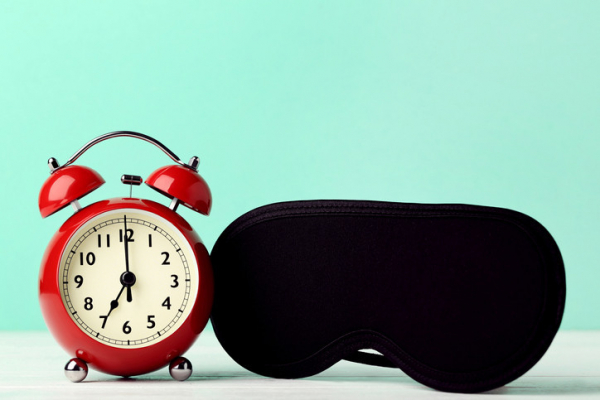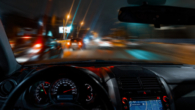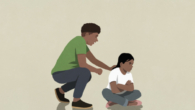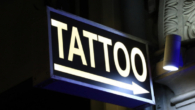
Does sleeping with an eye mask improve learning and alertness?

All of us have an internal clock that regulates our circadian rhythms, including when we sleep and when we are awake. And light is the single most important factor that helps establish when we should feel wakeful (generally during the day) and when we should feel sleepy (typically at night).
So, let me ask you a personal question: just how dark is your bedroom? To find out why that matters — and whether sleeping in an eye mask is worthwhile — read on.
How is light related to sleep?
Our circadian system evolved well before the advent of artificial light. As anyone who has been to Times Square can confirm, just a few watts of power can trick the brain into believing that it is daytime at any time of night. So, what’s keeping your bedroom alight?
- A tablet used in bed at night to watch a movie is more than 100 times brighter than being outside when there is a full moon.
- Working on or watching a computer screen at night is about 10 times brighter than standing in a well-lit parking lot.
Light exposure at night affects the natural processes that help prepare the body for sleep. Specifically, your pineal gland produces melatonin in response to darkness. This hormone is integral for the circadian regulation of sleep.
What happens when we are exposed to light at night?
Being exposed to light at night suppresses melatonin production, changing our sleep patterns. Compared to sleeping without a night light, adults who slept next to a night light had shallower sleep and more frequent arousals. Even outdoor artificial light at night, such as street lamps, has been linked with getting less sleep.
But the impact of light at night is not limited to just sleep. It’s also associated with increased risk of developing depressive symptoms, obesity, diabetes, and high blood pressure. Light exposure misaligned with our circadian rhythms — that is, dark during the day and light at night — is one reason scientists believe that shift work puts people at higher risk for serious health problems.
Could sleeping with an eye mask help?
Researchers from Cardiff University in the United Kingdom conducted a series of experiments to see if wearing an eye mask while sleeping at night could improve certain measures of learning and alertness.
Roughly 90 healthy young adults, 18 to 35 years of age, alternated between sleeping while wearing an eye mask or being exposed to light at night. They recorded their sleep patterns in a sleep diary.
In the first part of the study, participants wore an intact eye mask for a week. Then during the next week, they wore an eye mask with a hole exposing each eye so that the mask didn't block the light.
After sleeping with no light exposure (wearing the intact eye mask) and with minimal light exposure (the eye mask with the holes), participants completed three cognitive tasks on days six and seven of each week:
- First was a paired-associate learning task. This helps show how effectively a person can learn new associations. Here the task was learning related word pairs. Participants performed better after wearing an intact eye mask during sleep in the days leading up to the test than after being exposed to light at night.
- Second, the researchers administered a psychomotor vigilance test, which assesses alertness. Blocking light at night also improved reaction times on this task.
- Finally, a motor skill learning test was given, which involved tapping a five-digit sequence in the correct order. For this task, there was no difference in performance whether participants had worn an intact eye mask or been exposed to light at night.
What else did the researchers learn?
No research study is ever perfect, so it is important to take the conclusions above with a grain of salt.
According to sleep diary data, there was no difference in the amount of sleep, nor in their perceptions of sleep quality, regardless of whether people wore an eye mask or not.
Further, in a second experiment with about 30 participants, the researchers tracked sleep objectively using a monitoring device called the Dreem headband. They found no changes to the structure of sleep — for example, how much time participants spent in REM sleep — when wearing an eye mask.
Should I rush out to buy an eye mask before an important meeting or exam?
If you decide to try using an eye mask, you probably don’t need to pay extra for overnight shipping. Instead, follow a chronobiologist’s rule of thumb: “bright days, dark nights.”
- During the daytime, get as much natural daylight as you possibly can: go out to pick up your morning bagel from a local bakery, take a short walk during your afternoon lull at work.
- In the evening, reduce your exposure to electronic devices such as your cell phone, and use the night-dimming modes on these devices. Make sure that you turn off all unnecessary lights. Finally, try to make your bedroom as dark as possible when you go to bed. This could mean turning the alarm clock next to your bed away from you or covering up the light on a humidifier.
Of course, you might decide a well-fitted, comfortable eye mask is a useful addition to your light hygiene toolkit. Most cost $10 to $20, so you may find yourself snoozing better and improving cognitive performance for the price of a few cups of coffee.
About the Author

Eric Zhou, PhD, Contributor
Eric Zhou, PhD, is an assistant professor at Harvard Medical School. His research focuses on how we can better understand and treat sleep disorders in both pediatric and adult populations, including those with chronic illnesses. Dr. … See Full Bio View all posts by Eric Zhou, PhD












Leave a Reply